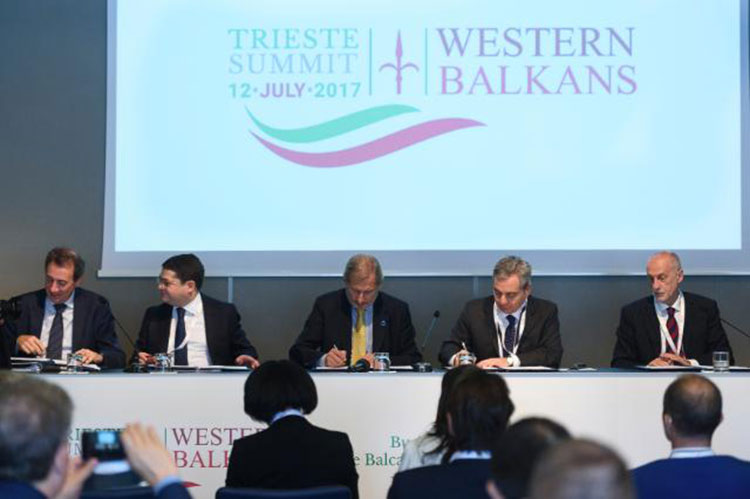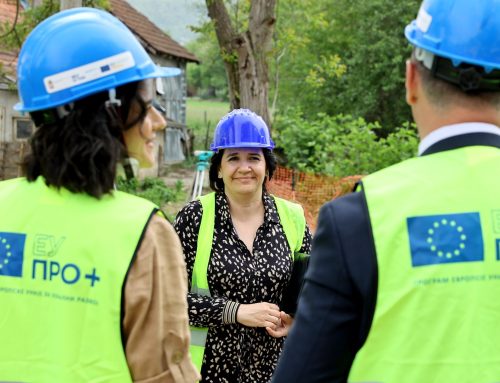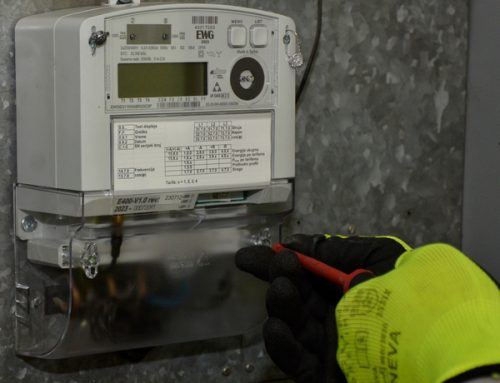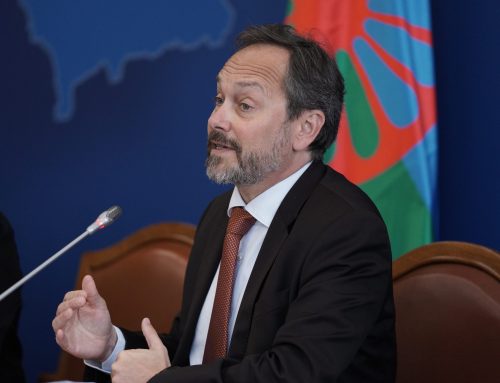The European Union has long supported its partners in the Western Balkans on their respective integration paths, and the European Council reaffirmed its unequivocal support for the European perspective of the Western Balkans on 9 March 2017. A credible enlargement policy is a key component of the EU’s Global Strategy and is not only a strategic investment in Europe’s security and prosperity, but has already contributed greatly to peace in formerly war-torn areas. The EU’s enlargement conditionality as well as the focus on strong regional cooperation helps create the political environment conducive to bilateral issues being resolved or no longer being politically instrumentalised.
EU support for and cooperation with its partners in the region delivers concrete benefits today: opportunities to travel, study abroad, gradual improvement of governance and rule of law, good neighbourly relations, and regional cooperation.
Significant steps for European integration:
- Stabilisation and Association Agreements have now entered into force for all six partners; the EU and Kosovo* held their first SA Council meeting in November 2016.
- Accession negotiations are progressing well with Montenegro (28 chapters opened, 3 provisionally closed) and Serbia (10 chapters opened, 2 provisionally closed).
- After the parliamentary elections of 25 June, the EU will deliver continued strong support to move forward in implementing Albania’s judicial reform, which is a key condition for opening accession negotiations.
- Following its accession application, the EU began preparing the Opinion on Bosnia and Herzegovina in September 2016 and is awaiting responses to the Questionnaire.
- After early parliamentary elections in December 2016, a new reform oriented government was elected in the former Yugoslav Republic of Macedonia, ready to implement Urgent Reform Priorities and Pržino Agreement. The EU will provide strong continuous support to the country, to continue on the European integration path.
- The Belgrade-Pristina Dialogue facilitated by High Representative/ Vice-President Federica Mogherini is linked with the EU integration paths of both sides and an important instrument for stability and peace in region. Belgrade and Pristina have demonstrated a great level of commitment to the dialogue, which has resulted in concrete achievements in the interest of citizens. Over 40 high-level meetings since Autumn 2012 have taken place.
Regional cooperation: There is strong EU political and financial support for cooperation in the region, which acts a catalyst for reconciliation and good neighbourly relations. In addition to its strong political support for the Western Balkans Six and the Berlin Process, the EU is providing concrete financial support for six regional initiatives, including the Regional Cooperation Council, to boost economic development, improve connectivity, and enhance security and many other benefits across the region. The EU is supporting the Western Balkans initiative to establish a Regional Economic Area to make the region of 20 million people more attractive to investors, creating new jobs and opportunities within the region.
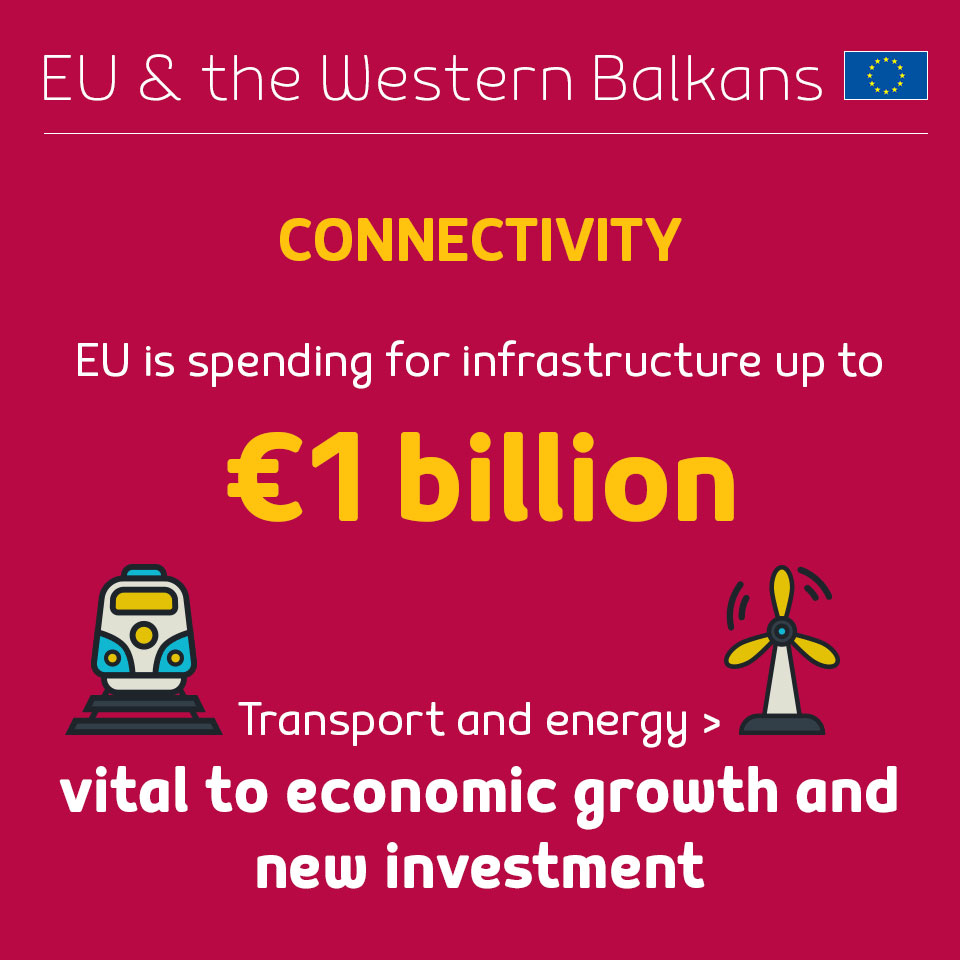 Connectivity Agenda: The EU is establishing a Regional Electricity Market and is about to sign a Transport Community Treaty with the region. Well-developed and connected transport and energy infrastructure is vital to regional cooperation, economic growth and attracting new investment. The EU is spending up to €1 billion for infrastructure and has set aside funds for related technical assistance in the Western Balkans, as announced at the Berlin Process Vienna Summit in 2015.
Connectivity Agenda: The EU is establishing a Regional Electricity Market and is about to sign a Transport Community Treaty with the region. Well-developed and connected transport and energy infrastructure is vital to regional cooperation, economic growth and attracting new investment. The EU is spending up to €1 billion for infrastructure and has set aside funds for related technical assistance in the Western Balkans, as announced at the Berlin Process Vienna Summit in 2015.
The EU is the biggest donor in the Western Balkans.
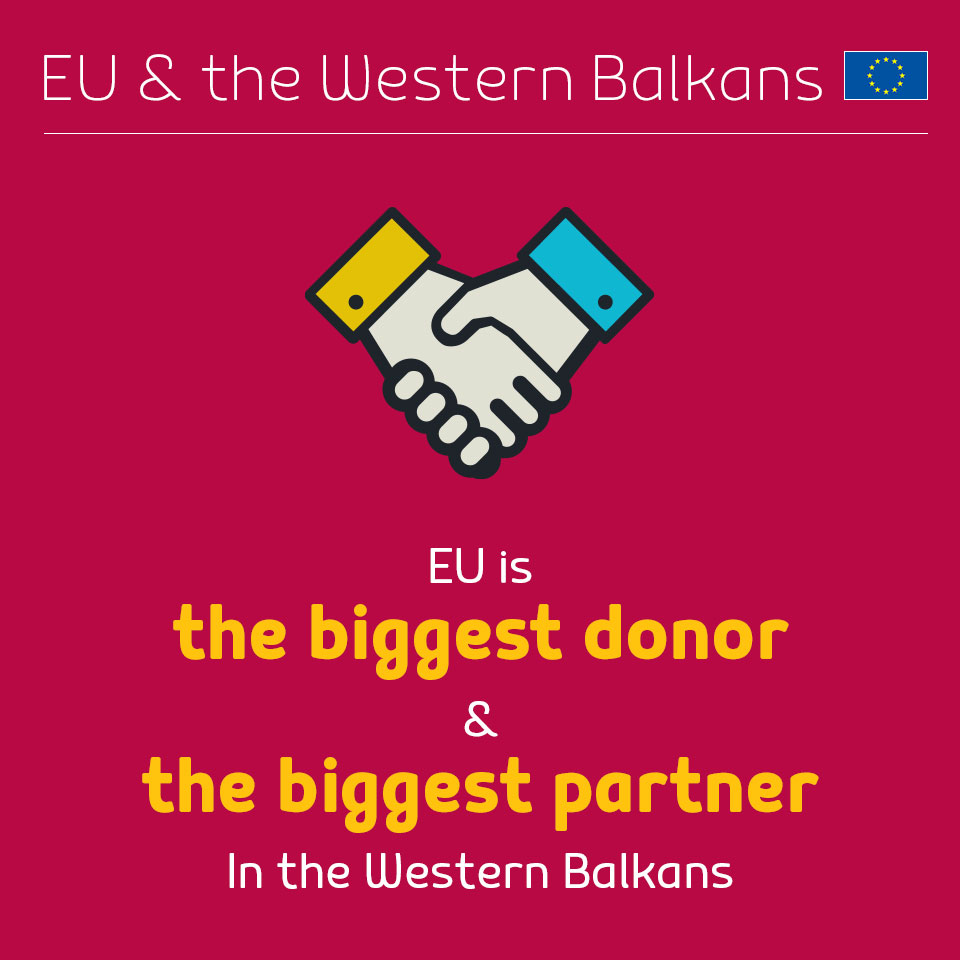 IPA: The Instrument for Pre-accession Assistance (IPA) is the means by which the EU supports reforms in the ‘enlargement countries’ with financial and technical help. The IPA funds – now in its second period – build up the capacities of the countries throughout the accession process, resulting in progressive, positive developments in the region. IPA II builds on the results already achieved by dedicating nearly €4 billion among individual partners in the Western Balkans and an additional €3 billion in multi-country funds for the period 2014-2020.
IPA: The Instrument for Pre-accession Assistance (IPA) is the means by which the EU supports reforms in the ‘enlargement countries’ with financial and technical help. The IPA funds – now in its second period – build up the capacities of the countries throughout the accession process, resulting in progressive, positive developments in the region. IPA II builds on the results already achieved by dedicating nearly €4 billion among individual partners in the Western Balkans and an additional €3 billion in multi-country funds for the period 2014-2020.
EU pre-accession funds are a sound investment into the future of both the enlargement countries and the EU itself. They help the beneficiaries make political and economic reforms, preparing them for the rights and obligations that come with EU membership. Those reforms provide their citizens with better opportunities and allow for development of standards equal to the ones enjoyed by citizens of the EU. The pre-accession funds also help the EU reach its own objectives regarding a sustainable economic recovery, energy supply, transport, the environment and climate change, etc.
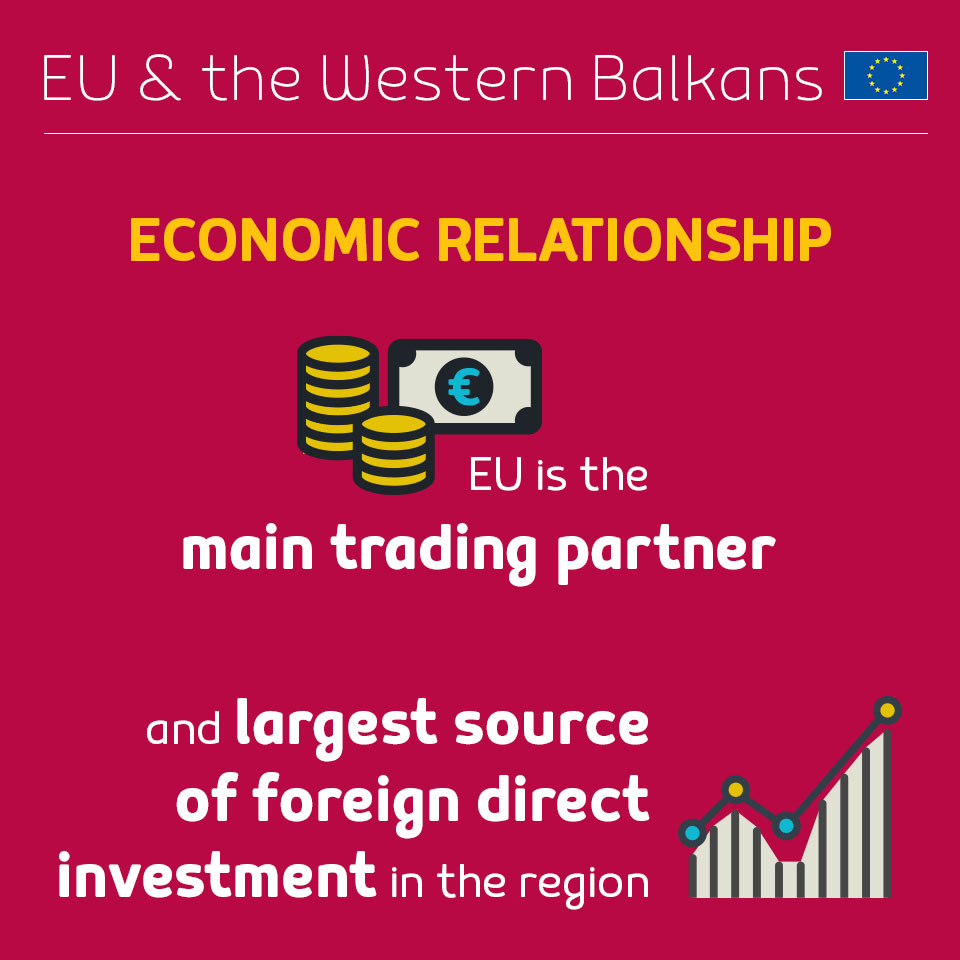 Strong economic relationship: The EU is the main trading partner for Western Balkans partners and accounts for more than two-thirds of foreign direct investment in the region.
Strong economic relationship: The EU is the main trading partner for Western Balkans partners and accounts for more than two-thirds of foreign direct investment in the region.
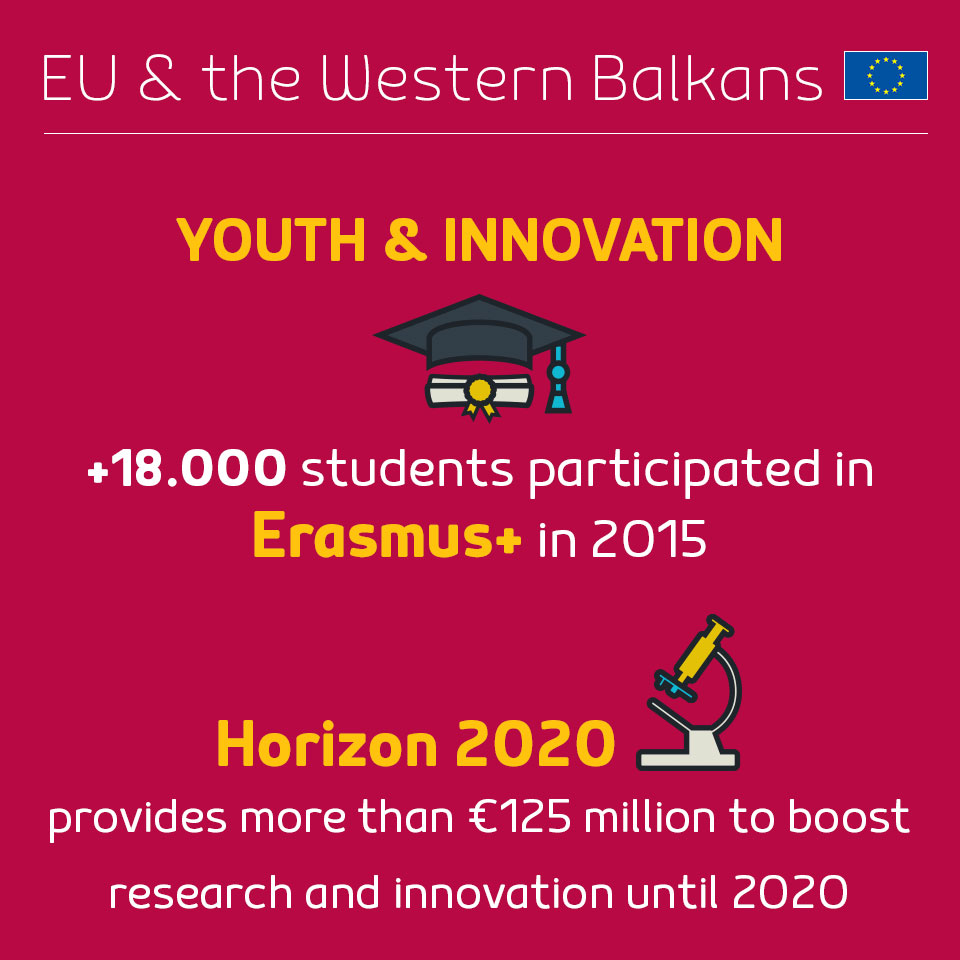 Creating opportunities for youth and innovation: Direct participation in EU programmes such as Erasmus+, Horizon 2020, Creative Europe, and COSME helps partners boost their development by creating opportunities for young people and researchers. In 2015, more than 18,000 students took advantage of the Erasmus+ programme for youth related actions. The Horizon 2020 research and innovation programme will provide more than €125 million in EU funding between 2014 and 2020 to boost research and innovation in the region.
Creating opportunities for youth and innovation: Direct participation in EU programmes such as Erasmus+, Horizon 2020, Creative Europe, and COSME helps partners boost their development by creating opportunities for young people and researchers. In 2015, more than 18,000 students took advantage of the Erasmus+ programme for youth related actions. The Horizon 2020 research and innovation programme will provide more than €125 million in EU funding between 2014 and 2020 to boost research and innovation in the region.
The EU supports stability and security in the region.
Regional and Global Security: Two Common Security and Defence Policy (CSDP) missions (EUFOR’s Operation Althea and EULEX Kosovo) operate in the region; at the same time the partners in the Western Balkans are making steps towards becoming security providers, with 10 contingents operating in EU CSDP missions throughout the world.
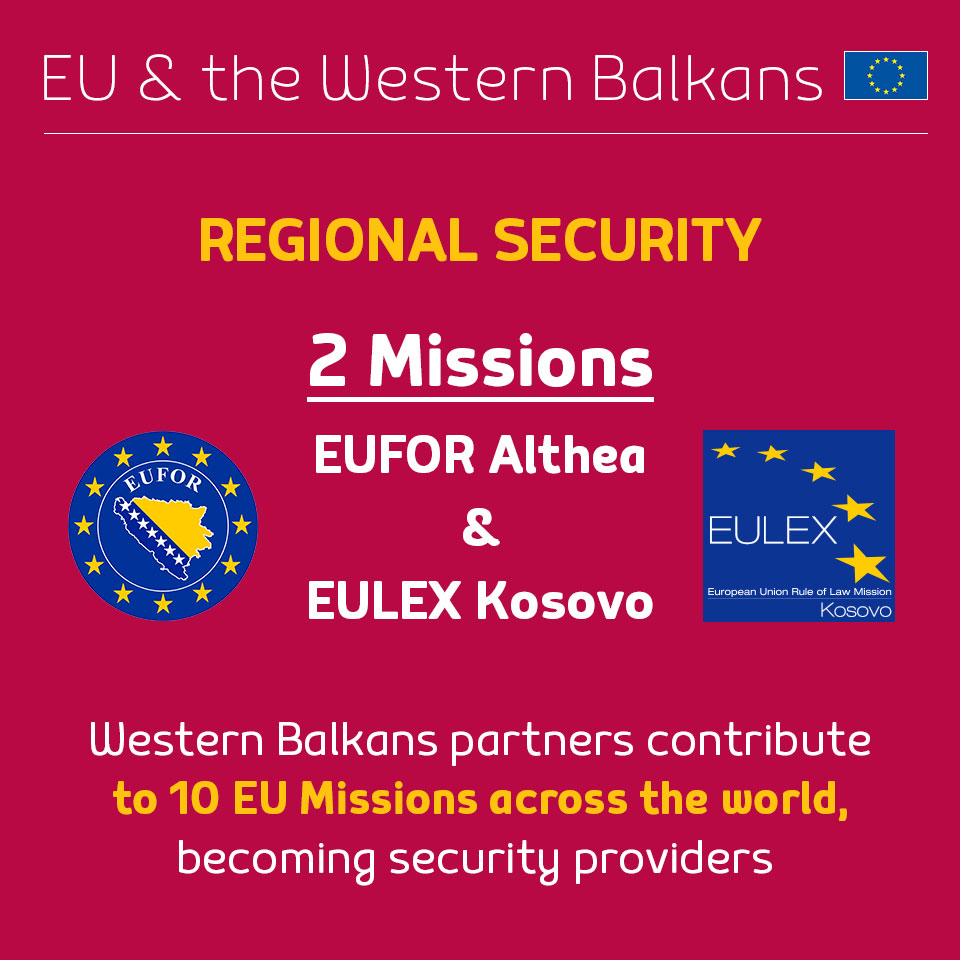 Counterterrorism initiative: Terrorism, violent extremism and radicalisation are common threats to the EU and to its Western Balkan partners that require a common approach. We are working together in Europol, Eurojust, the Radicalization Awareness Network (RAN), and the Western Balkans CT Initiative (WBCTi) and with IPA financial support. We are providing more than €42 million for counterterrorism and countering violent extremism projects in the region, in addition to funding related security and rule of law projects.
Counterterrorism initiative: Terrorism, violent extremism and radicalisation are common threats to the EU and to its Western Balkan partners that require a common approach. We are working together in Europol, Eurojust, the Radicalization Awareness Network (RAN), and the Western Balkans CT Initiative (WBCTi) and with IPA financial support. We are providing more than €42 million for counterterrorism and countering violent extremism projects in the region, in addition to funding related security and rule of law projects.
Migration: The EU has strongly supported and continues to support Western Balkan partners with more than €100 million through dedicated financial support programmes and humanitarian aid, delivery of expertise on the ground, ensuring smooth handling of migration flows and minimising space for threats to human rights.

